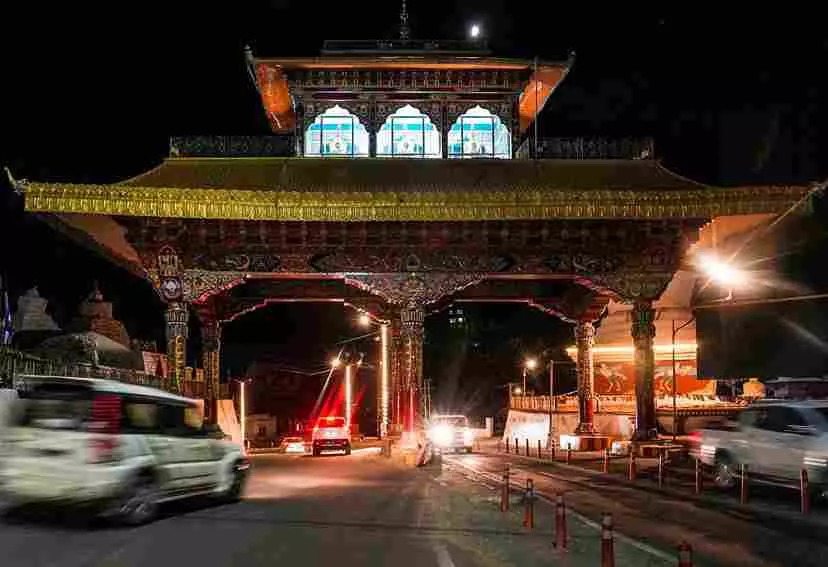
Vehicles move through the Leh Gate after the relaxation in curfew ended, in Leh, Ladakh, Wednesday, Oct. 1, 2025. Photo: PTI
Ladakh curfew hits tourism hard, empties hotels and taxis off roads
A week-long curfew in Leh leaves hotels empty, taxis idle, and local businesses struggling. How long can Ladakh’s tourism survive this blow?

A week into the curfew in Ladakh, tourist spots remain firmly closed and visitors are leaving, hitting the fragile local tourism sector hard.
Hotels, homestays, and taxi drivers are losing income daily, with little relief in sight. The region’s tourism had already been struggling, with visitor arrivals dropping from over 5,25,400 in 2023 to around 3,76,400 in 2024 — a decline of nearly 1.5 lakh tourists.
Now, with a curfew during the peak season, the economic impact is even more severe.
Also read: Ladakh protests: LG urges outfits to resolve issues through talks
Hotel owners say brief relaxation windows for essential operations are insufficient to sustain business. Norboo Galichan of Hotel Zimskhang in Alchi lamented that only two rooms were free in their hotel on September 29 but now the entire hotel is empty as tourists have left. Further, he pointed out a two-hour window when curfew was relaxed is simply not enough to procure supplies from Leh.
Struggling businesses
Ghulam Hussain, a hotel owner in Turtuk, described the year as particularly challenging.
From adverse weather operations affecting the region, he said the curfew has pushed many hotels to the brink.
“Ninety per cent of our business depends on tourism. Now there is a huge loss for all of us, and we have to pay rent as well,” Hussain explained, highlighting that internet shutdowns have also hindered online bookings.
Taxi drivers stranded
Local taxi drivers are facing a dire situation as well.
Also read: Kargil body halts talks with Centre; demands Sonam Wangchuk's release
Restricted by union rules, drivers can only operate in their registered areas, meaning a Nubra taxi cannot take passengers in Leh or Zanskar. Many took loans to buy vehicles and are now unable to repay them.
“Before this curfew, I used to earn 1,500-1,800 rupees a day. Now there is nothing. Tourists are also not coming out because there are no shops where they can eat or drink. What other work will we go for?” said Iqbal, a taxi driver from Nubra.
Economic uncertainty
The suspension of mobile internet services from September 29 to October 3 has added to the uncertainty, preventing online bookings and communication.
Also read: Ladakh tourism hit by Leh curfew after violence; bookings cancelled, travellers restricted
Local businesses say the situation could worsen if the curfew continues and demand for accommodations and transport remains low.
Authorities have indicated that further relaxations will depend on easing tensions, with a high-powered committee meeting scheduled in Delhi on October 6 to discuss measures for restoring normalcy in Ladakh. From empty hotels to idle taxis, the curfew has exposed a harsh reality: in Ladakh, when tourism stops, livelihoods vanish almost overnight.
The content above has been transcribed from video using a fine-tuned AI model. To ensure accuracy, quality, and editorial integrity, we employ a Human-In-The-Loop (HITL) process. While AI assists in creating the initial draft, our experienced editorial team carefully reviews, edits, and refines the content before publication. At The Federal, we combine the efficiency of AI with the expertise of human editors to deliver reliable and insightful journalism.

